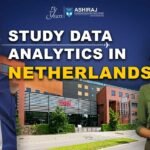
Data Analytics in Sweden
Data Analytics in Sweden has emerged as a pivotal force driving innovation and efficiency across various sectors. Sweden, renowned for its advanced technological infrastructure and progressive business environment, has embraced data analytics to optimize decision-making processes. From healthcare and finance to transportation and manufacturing, organizations in Sweden leverage data analytics to gain actionable insights, enhance operational performance, and foster competitive advantages in the global marketplace.
Data Analytics in Sweden encompasses a broad spectrum of methodologies, including statistical analysis, machine learning, and predictive modeling, to extract valuable insights from vast datasets. With a strong emphasis on data privacy and ethical considerations, Sweden’s approach to data analytics prioritizes responsible use and transparency. As Sweden continues to harness the power of data analytics, the nation is poised to drive innovation, foster economic growth, and address complex societal challenges with data-driven solutions.
Why to Study Data Analytics in Sweden?
- Cutting-edge Education: Sweden offers world-class education in data analytics, with universities and institutions known for their innovative curriculum and research facilities.
- Global Recognition: A degree in data analytics from Sweden is internationally recognized, providing graduates with ample opportunities for global career advancement.
- Industry Integration: Sweden boasts a thriving tech industry, with leading companies actively seeking skilled data analysts, offering ample internship and job opportunities.
- Multicultural Environment: Studying data analytics in Sweden exposes students to a diverse and inclusive environment, fostering cross-cultural understanding and collaboration.
- Innovative Research: Sweden is at the forefront of data analytics research, providing students with access to cutting-edge technologies and methodologies.
- Practical Experience: Many data analytics programs in Sweden emphasize hands-on learning through real-world projects and industry partnerships, enhancing students’ practical skills.
- Networking Opportunities: Students studying data analytics in Sweden have the chance to connect with industry professionals and experts through conferences, workshops, and networking events.
- Quality of Life: With its high standard of living, excellent healthcare, and vibrant cultural scene, Sweden offers an unparalleled quality of life for students pursuing data analytics education.
By studying data analytics in Sweden, students can gain a competitive edge in the field and contribute to the advancement of technology and society.
Top Universities to Study Data Analytics in Sweden
University | QS World University Ranking 2023 | Type of University | Average Annual Fees | Programs Offered |
KTH Royal Institute of Technology | 33 | Public | $0 (Tuition-free for EU/EEA students) | Data Science, Machine Learning, Big Data Analytics |
Lund University | 55 | Public | $9,000 – $15,000 | Business Intelligence and Analytics, Data Mining |
Chalmers University of Technology | 77 | Public | $0 (Tuition-free for EU/EEA students) | Data Science and Artificial Intelligence, Statistical Data Analysis |
Uppsala University | 90 | Public | $9,000 – $15,000 | Data Analytics, Predictive Modeling, Statistical Analysis |
Stockholm University | 120 | Public | $9,000 – $15,000 | Applied Data Science, Data Visualization, Data Mining |
In Sweden, several universities excel in offering top-notch education in data analytics, contributing to the nation’s prowess in technological innovation and research. Here’s a list of the top universities in Sweden for Data Analytics:
- KTH Royal Institute of Technology: Renowned for its cutting-edge research and tuition-free education for EU/EEA students, KTH offers comprehensive programs in Data Science, Machine Learning, and Big Data Analytics.
- Lund University: With a strong focus on Business Intelligence and Analytics, Lund University provides a diverse range of programs, attracting students with its excellent faculty and research facilities.
- Chalmers University of Technology: Specializing in Data Science and Artificial Intelligence, Chalmers offers tuition-free education for EU/EEA students, emphasizing practical skills and innovative research.
- Uppsala University: Uppsala University offers programs in Data Analytics, Predictive Modeling, and Statistical Analysis, fostering a dynamic learning environment and encouraging interdisciplinary collaboration.
- Stockholm University: Known for its programs in Applied Data Science and Data Visualization, Stockholm University equips students with the necessary skills to tackle complex data challenges and drive innovation in various industries.
Course Curriculum for Data Analytics in Sweden
- Foundational Courses: The curriculum typically begins with foundational courses covering statistics, mathematics, and programming languages like Python and R, essential for data analysis.
- Data Mining and Warehousing: Students delve into techniques for extracting, cleaning, and transforming data, along with understanding database management systems and data warehousing principles.
- Machine Learning and Predictive Analytics: Emphasis is placed on machine learning algorithms, including regression, classification, clustering, and neural networks, to enable predictive analytics and pattern recognition.
- Big Data Technologies: Students learn about distributed computing frameworks like Hadoop and Spark, exploring how to handle and analyze massive datasets efficiently.
- Data Visualization: Visualization techniques using tools like Tableau or matplotlib are taught to effectively communicate insights gleaned from data analysis.
- Ethics and Privacy: The curriculum often includes discussions on the ethical considerations and legal implications surrounding data analytics, emphasizing responsible data usage and privacy protection.
- Industry Projects: Many programs incorporate industry projects or internships, allowing students to apply their skills in real-world scenarios and gain practical experience.
- Elective Specializations: Some programs offer elective courses in specialized areas such as healthcare analytics, financial analytics, or social media analytics, catering to diverse career interests.
Data Analytics in Sweden equips students with a robust skill set in data analysis, machine learning, and data management, preparing them for rewarding careers in various industries.
Eligibility Criteria & Admission Requirements for MS in Data Analytics in Sweden
- Language Proficiency: Applicants must demonstrate proficiency in English through standardized tests such as IELTS or TOEFL. Typically, a minimum score of 6.5 in IELTS or 90 in TOEFL is required.
- Standardized Tests: Many universities in Sweden may require GRE or GMAT scores for admission. The average GRE scores for admitted students often range between 310-330, while a competitive GMAT score is usually above 600.
- Academic Certificates: Applicants are required to provide academic transcripts and certificates, showcasing their educational background and qualifications. A bachelor’s degree in a related field is usually a prerequisite for admission to a master’s program in data analytics.
- Work Experience: While not always mandatory, relevant work experience in data analysis, statistics, or related fields can strengthen an applicant’s profile and increase their chances of admission.
- Passport & Student Visa: International students must possess a valid passport and obtain a student visa to study in Sweden. The visa application process typically requires proof of admission to a Swedish university, financial means to support oneself, and valid health insurance.
Table: Standardized Test Scores
Test | Minimum Score |
IELTS | 6.5 |
TOEFL | 90 |
GRE | 310-330 |
GMAT | 600 |
Data Analytics in Sweden welcomes applicants who meet these eligibility criteria, ensuring a diverse and qualified cohort of students prepared to excel in the field.
Documents Required for Studying Data Analytics in Sweden
- Passport: A valid passport is essential for international students applying to study data analytics in Sweden, serving as proof of identity and nationality.
- Letters of Recommendation (LOR): Typically, applicants need to submit two letters of recommendation from academic or professional references who can attest to their qualifications and potential for success in the program.
- Statement of Purpose (SOP): An SOP outlining the applicant’s academic background, career goals, and reasons for choosing data analytics in Sweden is required to assess their motivation and fit for the program.
- Curriculum Vitae (CV): A comprehensive CV highlighting the applicant’s educational qualifications, work experience, skills, achievements, and extracurricular activities is necessary for evaluating their overall profile.
- Official High School Transcripts and Certificates: Academic transcripts and certificates from high school or secondary education institutions provide evidence of the applicant’s academic performance and qualifications.
- Work Experience Certificate: If applicable, a work experience certificate demonstrating relevant professional experience in data analysis, statistics, or related fields may be required to strengthen the applicant’s profile.
- Proof of Financial Resources: International students must demonstrate sufficient financial resources to cover tuition fees, living expenses, and other related costs during their stay in Sweden. This can be shown through bank statements, scholarship letters, or sponsorship documents.
Data Analytics in Sweden necessitates the submission of these documents to ensure that applicants meet the academic, financial, and personal requirements for admission to the program.
Admission Process for Data Analytics in Sweden
- Research Programs: Explore universities in Sweden offering data analytics programs and review their admission requirements, curriculum, and faculty expertise.
- Check Eligibility: Ensure you meet the eligibility criteria, including language proficiency, standardized test scores (if required), academic background, and any specific prerequisites set by the university.
- Prepare Documents: Gather necessary documents such as academic transcripts, standardized test scores (IELTS/TOEFL, GRE/GMAT), letters of recommendation, statement of purpose, CV, passport, and proof of financial resources.
- Submit Application: Complete the online application form provided by your chosen university, carefully following instructions and deadlines. Pay attention to any application fees that may be required.
- Track Application Status: Monitor the status of your application through the university’s online portal. Ensure all required documents are submitted and any additional information requested is provided promptly.
- Interview (if applicable): Some universities may conduct interviews as part of the admission process to assess applicants’ suitability for the program.
- Receive Admission Decision: Once the admission committee reviews your application, you will receive an admission decision via email or through the university’s online portal.
- Accept Offer and Visa Application: If accepted, follow instructions to accept the offer of admission and initiate the process for obtaining a student visa. Prepare additional documentation required for the visa application, including health insurance and accommodation arrangements.
- Prepare for Arrival: Upon receiving your visa, make necessary travel arrangements and prepare for your arrival in Sweden. Familiarize yourself with the university’s orientation programs and any pre-departure information provided.
Data Analytics in Sweden involves a systematic approach to the admission process, ensuring that prospective students are well-prepared and meet the requirements for enrollment in the program.
“Education is the most powerful weapon which you can use to change the world.”
Nelson Mandela
Cost of Data Analytics Course in Sweden
- Tuition Fees: Many universities in Sweden offer tuition-free education for EU/EEA students in data analytics programs. However, non-EU/EEA students may incur tuition fees ranging from approximately $9,000 to $15,000 per year, depending on the university and program.
- Living Expenses: Students should budget for living expenses, including accommodation, food, transportation, and personal expenses. On average, monthly living costs in Sweden range from $800 to $1,200, varying based on the city and lifestyle choices.
- Health Insurance: All students in Sweden are required to have health insurance. International students may need to purchase comprehensive health insurance coverage, which can cost around $300 to $600 per year.
- Books and Supplies: Budget for textbooks, course materials, and other academic supplies, which can amount to approximately $300 to $500 per year, depending on the program requirements.
- Additional Costs: Factor in additional expenses such as visa application fees, residence permit fees, travel costs, and any extracurricular activities or leisure expenses.
- Scholarships and Financial Aid: Explore scholarships, grants, and financial aid opportunities offered by universities, government agencies, and private organizations to help offset the cost of studying data analytics in Sweden.
Data Analytics in Sweden involves careful financial planning to cover tuition fees, living expenses, and other associated costs for international students pursuing education in this field.
Scholarships for Data Analytics Courses in Sweden
Scholarship Name | Amount | Application Deadline |
Swedish Institute Scholarships | Fully funded | Varies (typically December-January) |
Karolinska Institutet Global Master’s Scholarships | Tuition fee waivers + living expenses | 15 January |
Chalmers IPOET Scholarships | 75% reduction in tuition fees | 15 January |
Lund University Global Scholarship Programme | Partial tuition fee waivers + living expenses | 15 January |
Uppsala University Global Scholarships | Tuition fee waivers + living expenses | 1 February |
Scholarships play a crucial role in supporting international students pursuing data analytics programs in Sweden. Here are some prominent scholarships available:
- Swedish Institute Scholarships: Fully funded scholarships covering tuition fees, living expenses, and insurance, offered by the Swedish Institute to students from various countries.
- Karolinska Institutet Global Master’s Scholarships: Provides tuition fee waivers and a stipend for living expenses to outstanding students applying for master’s programs at Karolinska Institutet.
- Chalmers IPOET Scholarships: Offers a 75% reduction in tuition fees for master’s programs in data analytics at Chalmers University of Technology.
- Lund University Global Scholarship Programme: Provides partial tuition fee waivers and a stipend for living expenses to talented students enrolling in master’s programs at Lund University.
- Uppsala University Global Scholarships: Grants tuition fee waivers and a stipend for living expenses to exceptional students admitted to master’s programs at Uppsala University.
These scholarships provide financial assistance and opportunities for international students to pursue their studies in data analytics in Sweden.
Career Opportunities After Data Analytics in Sweden
Job Profile | Average Salary (SEK) |
Data Analyst | 550,000 – 700,000 |
Data Scientist | 650,000 – 800,000 |
Business Intelligence Analyst | 600,000 – 750,000 |
Machine Learning Engineer | 700,000 – 850,000 |
Big Data Engineer | 700,000 – 850,000 |
Data analytics professionals in Sweden enjoy a plethora of career opportunities across various industries, offering competitive salaries and growth prospects. Here are some common job profiles and their average salaries.
- Data Analyst: Responsible for interpreting data, analyzing results, and providing insights to support decision-making processes. Average salary ranges from 550,000 to 700,000 SEK per year.
- Data Scientist: Utilizes advanced analytics and machine learning techniques to extract insights from data and develop predictive models. Average salary ranges from 650,000 to 800,000 SEK per year.
- Business Intelligence Analyst: Focuses on analyzing business data to help companies make informed strategic decisions. Average salary ranges from 600,000 to 750,000 SEK per year.
- Machine Learning Engineer: Designs and implements machine learning algorithms and models to solve complex problems. Average salary ranges from 700,000 to 850,000 SEK per year.
- Big Data Engineer: Manages and maintains large-scale data infrastructure and platforms. Average salary ranges from 700,000 to 850,000 SEK per year.
Data analytics in Sweden offers lucrative career paths with opportunities for professional development and advancement, making it an attractive field for aspiring professionals.
Frequently Asked Questions About Data Analytics in Sweden
Some of the top universities in Sweden offering data analytics programs include KTH Royal Institute of Technology, Lund University, Chalmers University of Technology, Uppsala University, and Stockholm University.
Yes, there are several scholarships available for international students, such as the Swedish Institute Scholarships, Karolinska Institutet Global Master’s Scholarships, and Chalmers IPOET Scholarships, to name a few.
The average tuition fee for data analytics programs in Sweden varies between $9,000 to $15,000 per year for non-EU/EEA students, while tuition-free options are available for EU/EEA students.
Most universities in Sweden require international students to demonstrate proficiency in English through standardized tests like IELTS or TOEFL, with minimum score requirements typically around 6.5 for IELTS and 90 for TOEFL.
While work experience is not always mandatory, relevant professional experience in data analysis or related fields can strengthen an applicant’s profile and increase their chances of admission.
Graduates of data analytics programs in Sweden can pursue various career paths, including roles as data analysts, data scientists, business intelligence analysts, machine learning engineers, and big data engineers, with competitive salary ranges.
The duration of data analytics programs in Sweden varies depending on the level of study. Master’s programs usually take 1 to 2 years to complete, while doctoral programs may take 3 to 5 years.
Many universities in Sweden offer internship opportunities as part of their data analytics programs, allowing students to gain practical experience and apply their skills in real-world settings.
The application process typically involves submitting an online application form, providing academic transcripts, standardized test scores, letters of recommendation, a statement of purpose, and proof of financial resources.
Yes, international students are allowed to work part-time (up to 20 hours per week) during the academic year and full-time during scheduled breaks, provided they have a valid residence permit and are enrolled in a full-time degree program.




